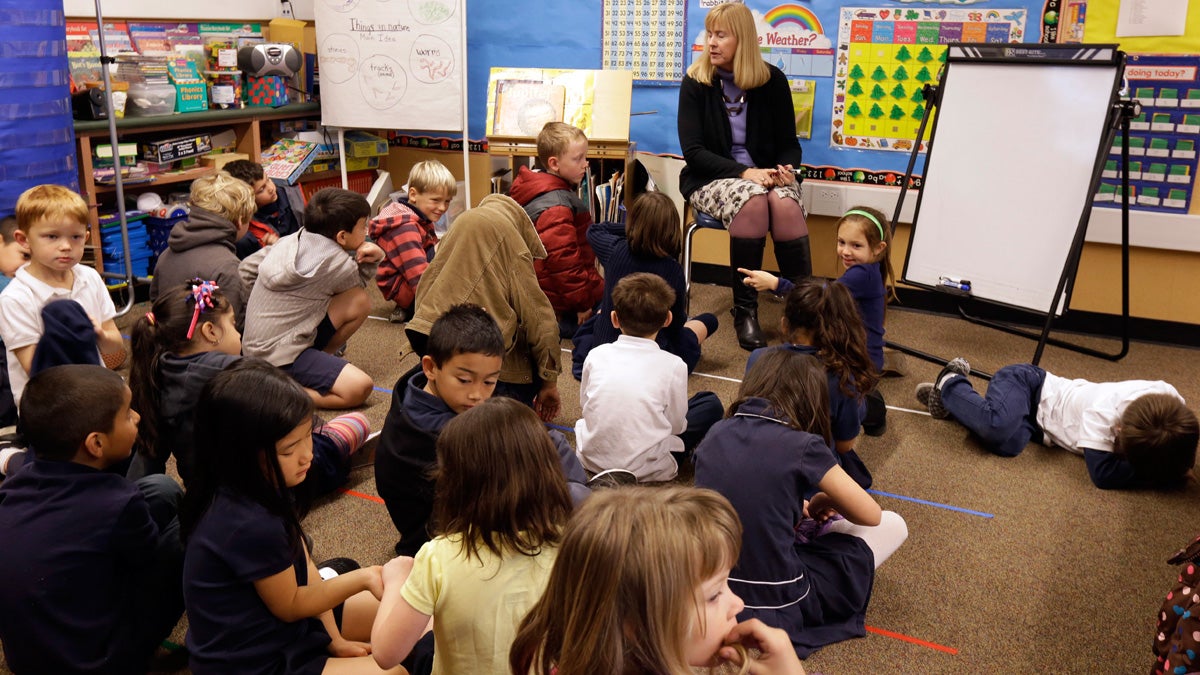The national movement behind Delaware’s charter closures
Listen
(file/NewsWorks)
Delaware charter schools have made big headlines recently, and not for the sunniest of reasons.
There’s Reach Academy for Girls, which lost its charter last year, sued to stay open, and lost its charter for a second time this week.
There’s the Maurice J. Moyer Academic Institute, which had its charter revoked earlier this year and promptly filed suit against the state.
Finally, there’s Family Foundations Academy, whose charter is in limbo due to allegations of financial impropriety.
Combine all of that with the closing of Pencader Business and Charter School in 2013, and there’s been a stark uptick in charter shutdowns for a state that closed just four charter schools in the first 17 years of its school choice law.
Delaware’s school choice law opened the door for the creation of charter schools when it passed in 1995.
Charter accountability system
All that turnover, it’s largely by design.
In 2012, the state introduced a new charter accountability system to better police schools, and, ultimately, shutter failing ones. Governor Jack Markell backed the effort, as did the National Association of Charter School Authorizers (NACSA), a pro-charter advocacy group.
“The framework can assist the state in both rewarding its best charter schools with opportunities to grow, and in taking the necessary action on schools that aren’t living up to their promise to educate Delaware’s children well,” NACSA president Greg Richmond said at the time.
The present focus on charter accountability in Delaware, and elsewhere, comes from some of the nation’s biggest charter backers. NACSA launched its “One Million Lives” campaign in late 2012. It urged the charter community to “fix the failings in its sector.”
The National Alliance for Public Charter Schools issued a policy brief earlier this year on the growing number of states that now automatically close charter schools that don’t reach predetermined performance thresholds.
And just this week in Ohio, Republican Governor John Kasich vowed to beef up his state’s charter regulations and oversight. Kasich’s remarks follwed two scathing reports on Ohio’s lack of charter oversight by the Thomas P. Fordham Institute, a conservative, pro-charter think tank.
“The sector is policing much more actively than it was before,” said Alex Medler, NACSA’s vice president of Policy and Advocacy. “There’s been a profound evolution in the definition of charter school oversight in the last 20 years. And it’s picked up speed in the last five.”
Advocates like Medler have said they want the charter sector to keep its original promise, namely that its schools would submit to increased accountability in exchange for more freedom and flexibility.
“Charter schols were brought about so that they could come up with different and alternative ways to work for kids,” said Kendall Massett, executive director of ther Delaware Charter Schools Network. “And if it’s not working, they need to stop.”
The thinking goes that by closing bad schools and replicating good ones, charters can improve educational standards.
Theory and practice
But theory hasn’t always matched practice. In Delaware, for instance, charter schools were rarely closed during the first decade-and-a-half of the state’s choice law. And even with the national push by NACSA and others to raise charter standards, overall closure rates continued to vascillate.
By NACSA’s measure, authorizers closed 3.3 percent of charter schools during the 2012-13 school year. That number is up 0.4 percent from 2008-2009, but down 0.5 percent from the year prior. NACSA is optimistic those numbers will grow as tougher charter policies take roots, but there’s little statistical proof yet that the sector has truly toughened up on failing schools.
Even when states like Delaware try to get tough on charters, they face a myriad of challenges. The state has been sued twice this year by charter schools it has attempted to close. The Department of Education’s Charter School Accountability Committee recently recommended the state close a third struggling charter, Gateway Lab School, but the state board of education blanched after dozens of community leaders and politicians rallied to the school’s aid.
On the bright side for charter advocates, the state’s focus on accountability hasn’t scared off new applicants. Delaware plans to open five new charter schools next fall.
WHYY is your source for fact-based, in-depth journalism and information. As a nonprofit organization, we rely on financial support from readers like you. Please give today.





